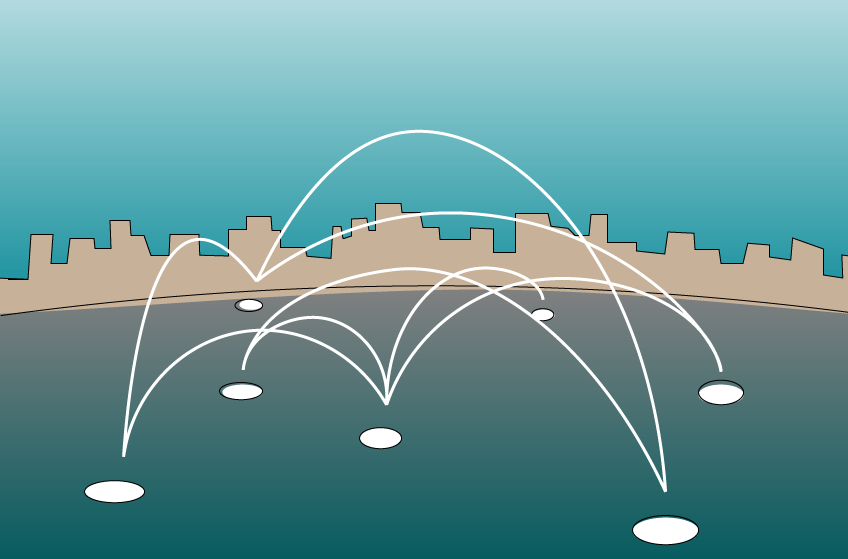Tackling technology terms: what is a network & infrastructure engineer anyway?
An acronym in itself, the IT industry loves jargon. But that does make it difficult when deciding what jobs to apply for. What exactly does a "project manager" do? Or a "technical liaison officer"?

Busting vague and indecipherable terms can take the intimidation out of your job search and help you to focus on what really matters: if you’re interested in the work. Here’s a rundown of the cryptic "network and infrastructure engineer" role to get you started.
What they do
IT systems and services are built on a framework. Put simply, network and infrastructure engineers are responsible for building and maintaining that framework. It’s one of the more technically challenging roles in IT, which means you’ll always be learning new things. To help break it down, it can be split into two main areas.
The first is networking. This covers the creation, running, maintenance, and upgrading of:
- Networks – both local area and wide area
- Network services
- Systems used for communicating – like Lync, Skype, and Jabber
- Middleware platforms – these are platforms that help bridge the gap between operating systems and the software applications that run on them
The second area is infrastructure, which includes providing and working on:
- Standardised ways of connecting cabling – called "structured cabling"
- Secure, stable Internet connections
- Networks that provide access to blocks of data storage - known as, "storage area networks"
- Platforms on virtual machines, and those used for development
- Security and disaster recovery strategies
- Databases

Depending on your IT experience, you’ll be more familiar with some terms than others. No graduate role will expect you to have an in-depth understanding of all these areas. In fact, some will give you training as part of the job.
The most important thing to know is what the main aim of the role is. And that’s to ensure the integrity of the network and infrastructure you’re responsible for, and make sure it’s up and running for as much time as possible.
Who they are
As you’ve probably gathered, network and infrastructure engineers build up a pretty broad knowledge-base. This typically makes them the "go to" IT people in a lot of companies. But they don’t get there by luck. Even if you don’t have any specific experience, if you’re interested in this kind of role, there are a few key traits that’ll help you succeed.
First of all, you have to have a real interest in IT. It sounds obvious, but without that curiosity and hunger to discover more, you’ll soon find yourself at the back of the pack. Next, you’ll need to be excellent at communicating. Explaining complex details in simple terms is a skill to perfect. Helping colleagues and clients understand what you’re talking about not only speeds up progress, it also helps your reputation as someone who’s easy to work with – a sure-fire way to advance.

Apart from that, a methodical mind and an analytical approach are common attributes in network and infrastructure engineers. Coming up against a range of issues, you’ll need to be good at developing a logical plan of action to solve the problem. That means staying calm under pressure and identifying the relationships between causes and effects.
Examples of typical projects
To give you a bit more context about the work involved, here are some typical projects network and infrastructure engineers roll up their sleeves for:
- Developing a new mechanism for publishing prototype websites for a client review
- Replacing a corporate firewall
- Implementing automated software deployment
- Implementing an e-Learning System on Linux infrastructure in a Windows Domain
- Migrating infrastructure to the cloud for hosting client public-facing websites
Depending on the organisation you work for, projects will vary. In a large investment bank you may be focusing on one area of the system. Whereas in a small company, you might be trouble-shooting for any IT-related problem. Alternatively, in companies that provide IT services to a range of clients, you’d likely be getting involved in a wider breadth of projects across the board.
Whatever your ambitions, gaining more knowledge about the different job types will help in determining the best path for you. And if you are interested in network and infrastructure engineering, there are certainly promising career paths to follow – whether you continue to progress in that role, or branch into a related field later down the line.